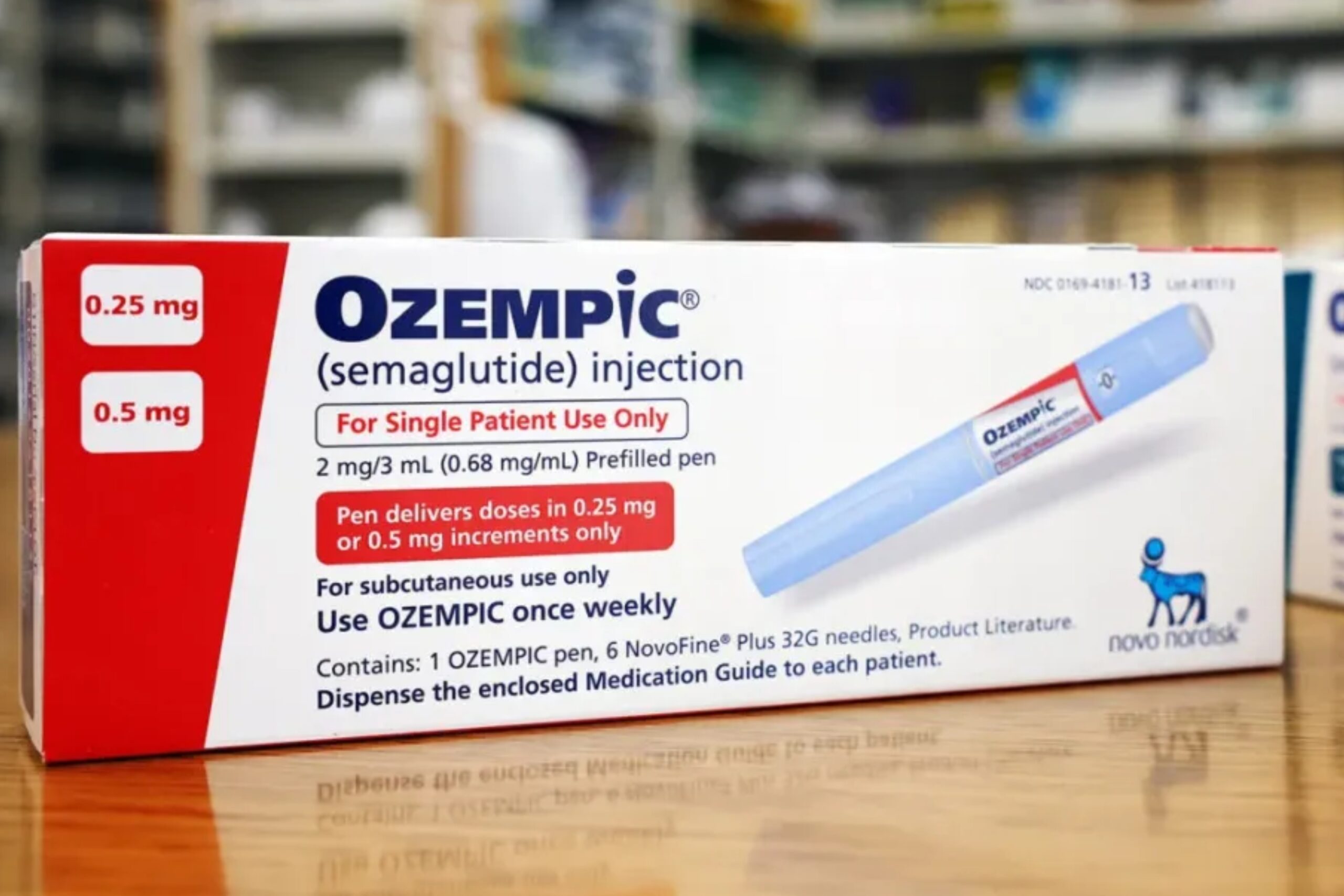Jump To Section
In today’s world, people actively pursue the ideal body shape and work hard to eliminate stubborn fat. As a result, various treatments flood the market, each claiming to help achieve these goals. Two treatments that have gained significant attention in recent years are Aqualyx fat dissolving injections and Ozempic, a medication originally designed to manage type 2 diabetes but now frequently discussed for its role in weight loss.
In this article, we explore both options, highlight their key differences, examine the benefits and potential drawbacks, and explain why Ozempic may not be the best choice for targeted fat reduction.
Aqualyx: Dissolving Fat Cells with Precision
Aqualyx is a non-surgical injectable treatment specifically designed to target and reduce localised pockets of fat. The active ingredient, deoxycholate, is a substance naturally found in the body that helps break down fat. When injected, it works by breaking down the walls of fat cells in the treatment area, allowing the body to gradually eliminate the fat through its natural processes.
- Precision Treatment: One of the key advantages of Aqualyx is its ability to target specific areas, making it ideal for individuals struggling with stubborn fat pockets that don’t respond to diet or exercise. Common treatment areas include the chin, abdomen, love handles, and thighs. You can read more in our detailed guide, Understanding Fat Dissolving Injections: The Ultimate Guide by clicking here.
- Non-Surgical Alternative: Aqualyx offers a minimally invasive alternative to liposuction. For a detailed comparison between these two treatments, check out our blog on Liposuction vs Fat Dissolving Injections by clicking here. With minimal downtime and no general anaesthesia, it’s an appealing option for those wanting to avoid surgery.
- Not for Weight Loss: Aqualyx should be understood as a body contouring tool rather than a weight loss solution. It is designed to reshape and refine areas resistant to other methods rather than helping individuals lose significant amounts of weight. If you’re interested in the science behind this treatment, click here to read our blog on The Science Behind Fat Dissolving Injections.
Is Aqualyx Right for You?
Aqualyx is ideal for healthy individuals who are close to their target weight but struggling with stubborn fat. It’s important to consult with a medical professional, such as our experts at Freyja Medical, to assess your suitability and develop a personalised treatment plan. If you’re still unsure click here to read our blog ‘Are Fat Dissolving Injections Safe?’ , where we explore safety considerations and whether this treatment might be right for you.

Ozempic: Weight Management with Medication
Ozempic (semaglutide) was initially developed for managing type 2 diabetes by mimicking the hormone glucagon-like peptide-1 (GLP-1), which plays a role in blood sugar control. However, an interesting side effect of the drug is appetite suppression and weight loss, making it a popular off-label treatment for weight management.
- Systemic Weight Loss: Unlike Aqualyx, Ozempic acts systemically, affecting the whole body rather than targeting specific fat deposits. Its weight loss effects result from reduced appetite and improved insulin sensitivity, leading to a reduction in calorie intake.
- Medical Usage: It’s crucial to note that Ozempic is primarily a diabetes treatment, and its weight loss benefits are secondary. Using it purely for weight management is off-label, meaning it hasn’t been fully tested for this purpose.
Potential Risks of Ozempic for Weight Loss
While the prospect of losing weight with a medication might seem appealing, there are some significant risks and limitations associated with using Ozempic for this purpose:
- Side Effects: Common side effects include nausea, vomiting, diarrhoea, and abdominal pain. More serious risks include kidney problems, diabetic retinopathy, and hypoglycemia.
- Systemic Action: Ozempic affects the entire body and might not be ideal for those looking to specifically target fat in certain areas, as Aqualyx does.
- Historical Precedents: Weight-loss medications have a troubled history, with drugs such as Rimonabant and Sibutramine being withdrawn from the market due to severe psychiatric and cardiovascular risks.
For those considering Ozempic for weight loss, it is vital to consult a healthcare professional to weigh the potential benefits and risks.

Aqualyx vs Ozempic: Key Differences
When comparing Aqualyx vs Ozempic, it’s essential to understand that the two treatments offer very different approaches to body shaping and weight management. Here are the key differences:
| Aspect | Aqualyx | Ozempic |
| Purpose | Localised fat reduction | Blood sugar control and appetite suppression |
| Mode of Action | Dissolves fat cells in specific areas | Reduces appetite and improves insulin sensitivity |
| Treatment Areas | Targeted areas like chin, abdomen, thighs | Systemic weight loss, affecting the whole body |
| Suitability | Individuals near target weight with stubborn fat | Off-label for weight loss, primarily for type 2 diabetes |
| Side Effects | Mild swelling, bruising, and tenderness at injection site | Nausea, vomiting, diarrhoea, kidney issues, hypoglycaemia |
| Risks | Minimal when performed by a qualified practitioner | Risk of severe side effects and long-term health concerns |
| Results | Body contouring and fat reduction | Weight loss as a secondary effect |
Why Aqualyx Might Be the Better Option for Targeted Fat Reduction
If you want to reduce fat in stubborn areas, Aqualyx offers a more effective and safer choice. This treatment targets specific areas, ensuring fat reduction occurs exactly where you want it. In contrast, Ozempic’s systemic effects are harder to predict and come with a higher risk of side effects. Additionally, using Ozempic for weight loss is off-label, making Aqualyx a more reliable and proven method for fat reduction. To learn whether fat dissolving injections work for you, click here to read our blog Do Fat Dissolving Injections Work?
At Freyja Medical, our expert team will guide you through the Aqualyx treatment process, helping you achieve precise fat reduction that aligns with your body goals.
Conclusion
While both Aqualyx and Ozempic offer potential solutions for fat reduction and weight management, they cater to different needs. Aqualyx is best for those looking for targeted fat reduction in specific areas, while Ozempic may be considered for systemic weight loss, though it comes with more risks.
It is essential to remember that no treatment can substitute for a balanced diet and regular exercise. Aqualyx provides precise fat reduction, but it works best when combined with a healthy lifestyle to maintain long-term results. Likewise, even for those on Ozempic, long-term success depends on adopting healthier habits.
How to Book Your Consultation
If you’re interested in Aqualyx fat-dissolving injections and want to learn more, book a consultation with our aesthetic specialist doctors or nurses at Freyja Medical! Click here to book online or contact us directly at 01978799688 or email us at [email protected]. Our expert team is here to guide you towards the best treatment options tailored to your needs and goals.


